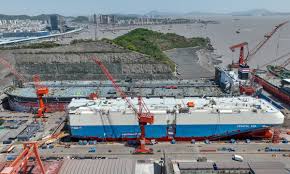Production of Greece’s new firefighting planes begins

Athens: The production of new firefighting planes that will equip Greece’s fleet as part of the EU’s rescEU scheme has begun.
This production will be part of the new fleet of amphibious firefighting planes of a broader European initiative in line with the EU’s response to the increasing threat of wildfires across Europe resulting, in part, from climate change.
A total of twelve new Canadair aircraft, type DHC 515, will be produced and financed by the European Commission. Once completed, they will be part of the permanent rescEU fleet.
The rescEU initiative is designed to have a permanent fleet that can rapidly be deployed to any EU member state that faces severe wildfires.
Greece, alongside Croatia, France, Italy, Portugal, and Spain, will host these new firefighting planes, significantly reinforcing their national firefighting resources.
These countries were chosen primarily because they have the most frequent wildfires in the EU.
Greece is expected to benefit from a total of seven new firefighting planes. Five of them will replace older versions of Greece’s Canadair fleet.
It is obvious that the climate crisis has exacerbated wildfires across the continent, something that led the European Commission to order these twelve new aircraft.
On their behalf, the EU’s Civil Protection Mechanism, which coordinates emergency assistance across member states, has been progressively strengthened since 2019 to address additional emergencies, as natural disasters continue to be on the rise.
The production of these new aircraft is a collaboration between several EU member states and the Canadian Commercial Corporation that produces them. The first batch of planes is expected to be delivered by the end of 2027.
European Commissioner for Crisis Management, Janez Lenarcic, recently said that this is a historic decision which addresses the problem of wildfires at a European level. “This is a historic moment in European civil protection in this age of climate crisis. As wildfire seasons become longer, deadlier and more unpredictable, we have been working tirelessly to bolster the EU’s firefighting response capacities,” the European official noted, adding that “Europe is committed to strengthening and deepening its efforts.”
Greece yet again experienced another summer with significant wildfires that affected many areas across the country from Serres in the north to Crete and Rhodes in the south.
The devastating wildfires that broke out near Athens earlier in August and burned huge areas of the northeastern suburbs of the capital have sparked widespread anger and public debates about the country’s ability to cope with the consequences of the climate crisis.





